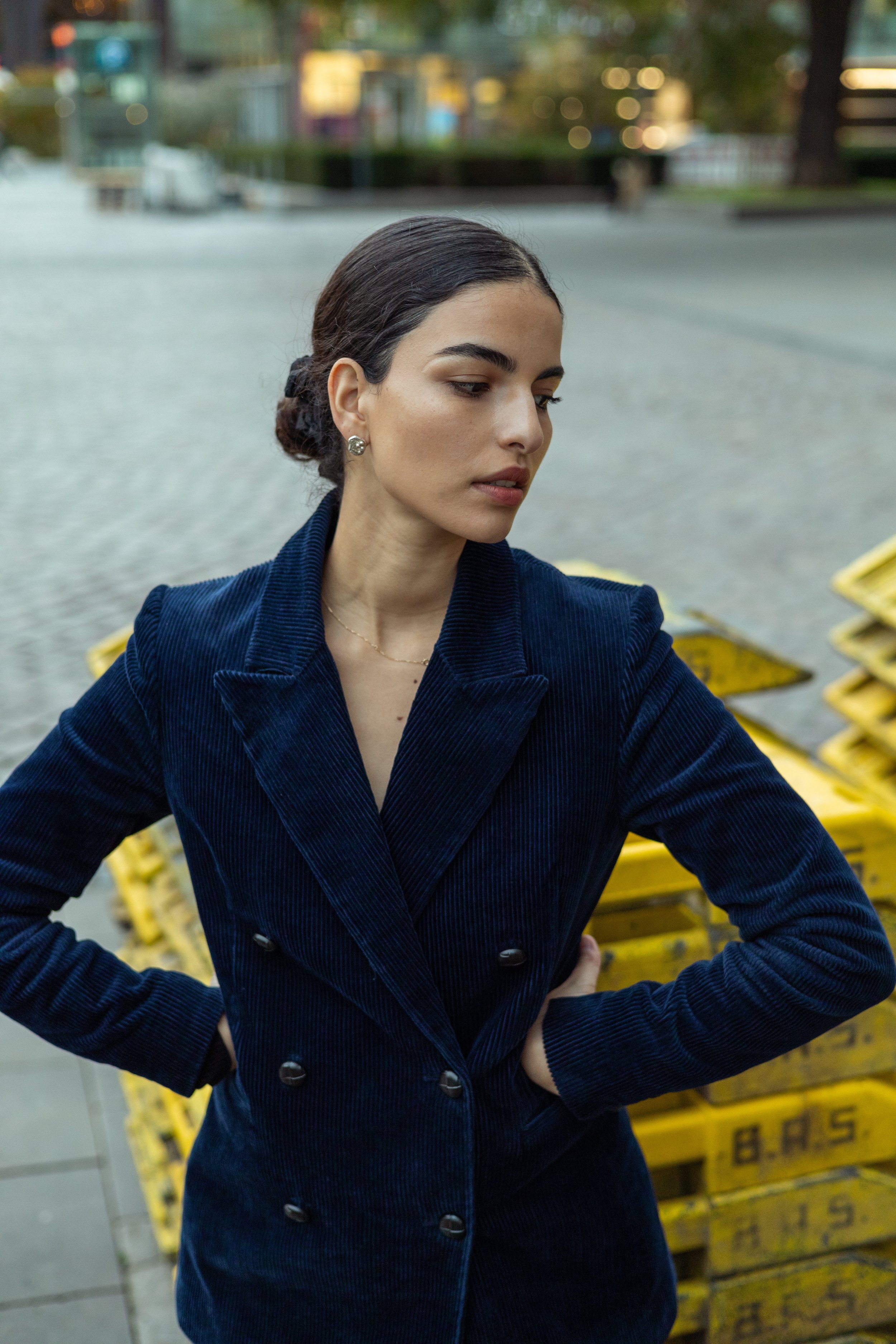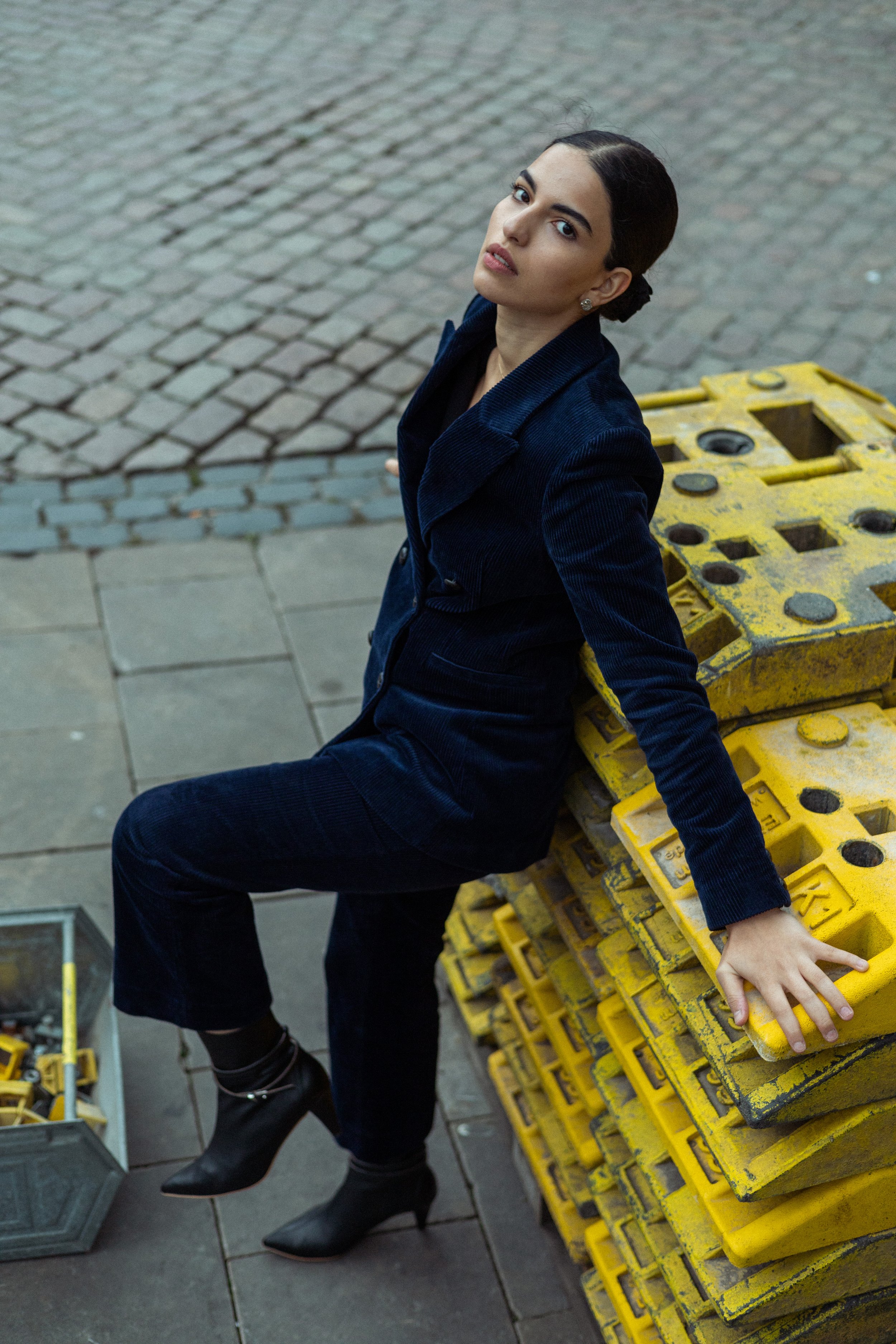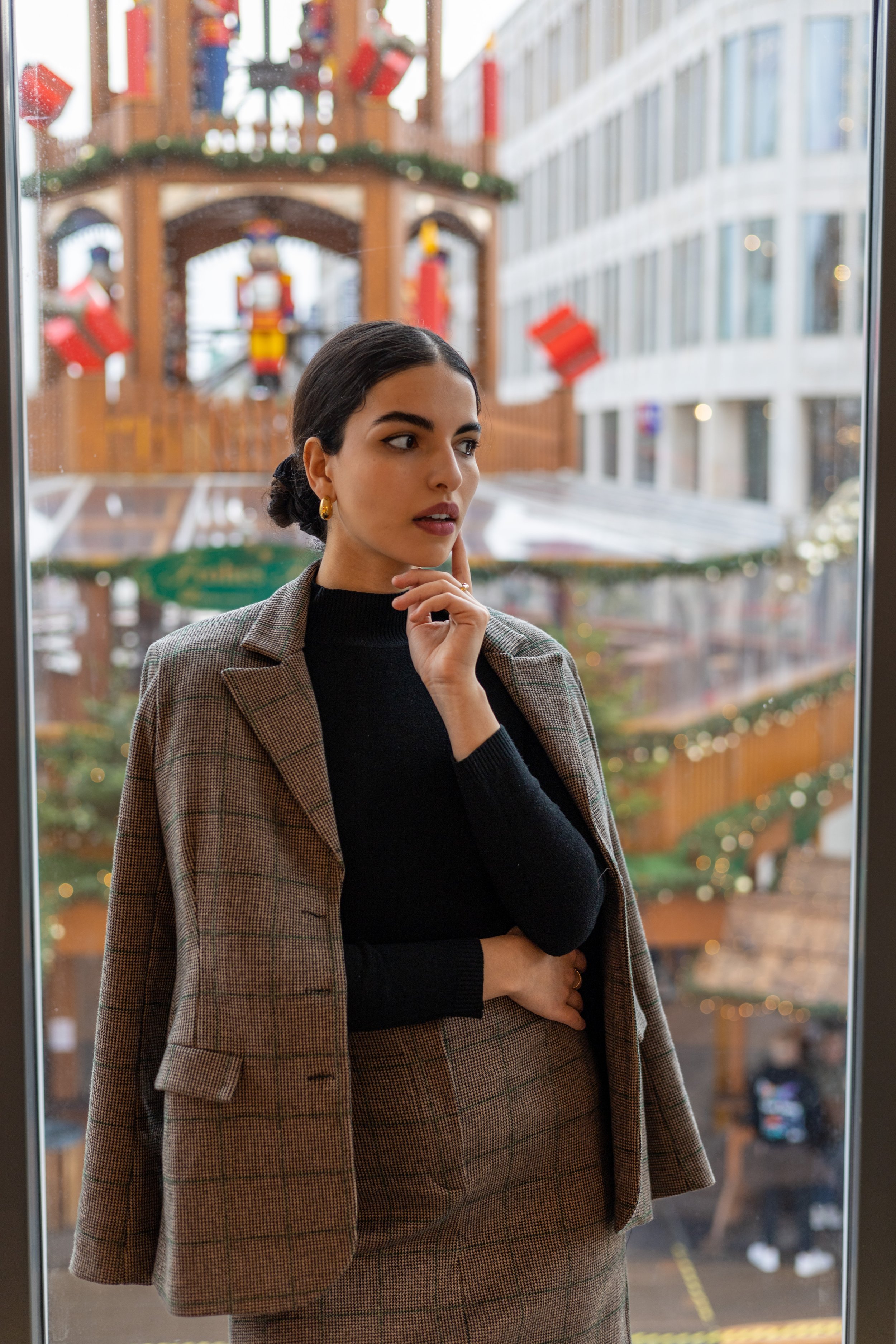INTERVIEW #128 NOA BEN MOSHE
Name: Noa Ben Moshe
Occupation: Founder, Style with a Smile
Based in: Germany
Website: www.stylewithasmile.co
Instagram: @style.withasmile
Hi, Noa Welcome to A Sustainable Closet, can you tell us more about yourself?
I'm the Founder of Style with a Smile, a multi-award-winning vegan, ethical, and sustainable fashion blog. I went vegan in 2013 for ethical reasons, and have been an animal rights activist ever since. I started my blog back in 2016 with the goal to bring attention to animal cruelty in the fashion industry and to promote vegan fashion. After two years, as I was exposed to more information on the fashion industry and its impacts on people and the environment, it grew to be a total-ethics fashion blog; which not only addresses non-human animals but also humans and the environment we all share. My hometown is Tel Aviv, Israel, but I've been living in Germany since mid-2020. The majority of my time is spent researching, writing, shooting, and consulting with vegan brands. Vegan chocolate holds a special place in my heart for everyone who knows me!
We would like to start with you personally, so what’s your relationship with clothes, when did you get interested?
My mother was a real fashionista, and my father used to own a restaurant right in front of Shenkar, known as one of the world's top fashion design schools, so I was exposed to this world at a very young age, constantly surrounded by a lot of inspiration. I remember being very particular about the clothes I was wearing since I was a kid, which is something I inherited from my mother, I suppose.
How would you describe your style and the clothes choose to wear?
I always tend to go for elevated timeless classics, put-together but effortless and undone. I get a lot of inspiration from classic Parisian and Italian styles. I don't follow trends and always enjoy finding unique, vintage vegan pieces that would go with my closet. I have a specific colour palette that works best for me, but I do enjoy fun statement pieces here and there. For me, an outfit can never be complete without accessories! With my core closet, I stick to solid neutrals and then play with bags, shoes, and accessories to elevate my outfits and make them more personal. My number one rule is to invest in high-quality pieces that will pass the test of time, not only in terms of style but also in quality and durability. Less is more, as the saying goes.
How would you describe your closet, messy or in complete order?
It's always in perfect order, and I find organizing and going through it quite therapeutic, so I tend to do it quite often, especially since my wardrobe is also my "work tool". There is one exception though, and it is when I am preparing for a photoshoot. Then things can get quite messy very quickly... creative chaos?
How do you plan your outfits, the day before or more spontaneously?
Most of the time I do it spontaneously, as I choose my outfits based on my mood and how I want to feel each day. Sometimes I find outfit inspiration on the street, in magazines, runways or online and I would feel inspired to recreate these elements in my own way. The only time I plan my outfits in advance is when I travel, and then I build a "capsule" according to the destination, weather and planned activities.
You talk about vegan, ethical and sustainable fashion on your social media accounts. Some people believe vegan is not sustainable, ethical fashion is about workers' rights and sustainable fashion doesn't have to be vegan.. can you please walk us through these views and misconceptions and tell us what is what for what reason? Within sustainable fashion wool, leather and other animal products are often seen as a solution, why is this a problem from an ethical perspective and can we instead create a climate and environmental fashion that doesn't harm animals?
The terms "ethical" and "sustainable" fashion are overused umbrella terms that seem to have lost a clear definition, and different people have different opinions of what "sustainable fashion" is. There has been an increase in the misuse and overuse of these terms.
The truth is, it is a very big spectrum, where things can be more, or less, sustainable than others- but the big question is what is it that we want to sustain? I believe that we cannot talk about ethical fashion without mentioning all living beings and the environment, which belongs to no one and all. Injustices in the fashion industry like nonhuman-animal abuse and slaughter for fashion cannot be justified nor ethical, but in fact, it harms not only animals, but our planet, and therefore us. Moreover, workers in slaughterhouses, tanneries and sweatshops are very much impacted by the animal fashion industry. Whatever harms the environment essentially harms us and animals, and whatever harms animals essentially harms the planet and therefore us. Ethical fashion has to take into consideration the planet and all those who live on it. My friend and Founder of the nonprofit organisation Collective Fashion Justice, Emma Hakasson, coined the term "total-ethics-fashion", which is addressing exactly that.
It is correct that a material classified as vegan does not mean it is a sustainable material. And it is also true that animal-derived materials are not sustainable. In fact, they are more harmful to the planet to produce than vegan alternatives, even if those are not yet perfect. It’s important that we – and that fashion brands – do the best we can when it comes to choosing the most sustainable materials for their specific use. If we want to do that effectively, based on the best available data, we need to be avoiding all animal-derived materials, avoiding virgin synthetics, and unsustainable agricultural practices. Luckily, there are a wealth of materials that fall outside of these categories, that are innovative, more ethical, and better for the planet.
Can you mention any brands that you think have the complete picture of vegan, ethical and sustainable fashion?
Some brands that come to mind are, for example, Melina Bucher, which is using sustainable, circular plastic-free vegan leather alternative "Mirum" for her most recent designs, Mud Jeans, creating circular vegan denim using recycled old denim, Luxtra, creating fully-vegan bags from all kinds of innovative materials like AppleSkin, Deserto, Mango leather, corn leather and more. I really like Bhava for high-quality, long-lasting vegan footwear.
What is your best advice towards the readers to enjoy fashion and clothing without doing harm?
Utilise what you already own and make it last as long as possible. Always opt for vegan second-hand clothing as the first option when looking for something new to add to your closet. Follow vegan fashion bloggers and platforms to discover brands that are aligned with your ethics, become a more educated consumer, and never underestimate your power to inspire change! Be vocal, and use your voice and your platforms to help others learn and evolve for the better.






